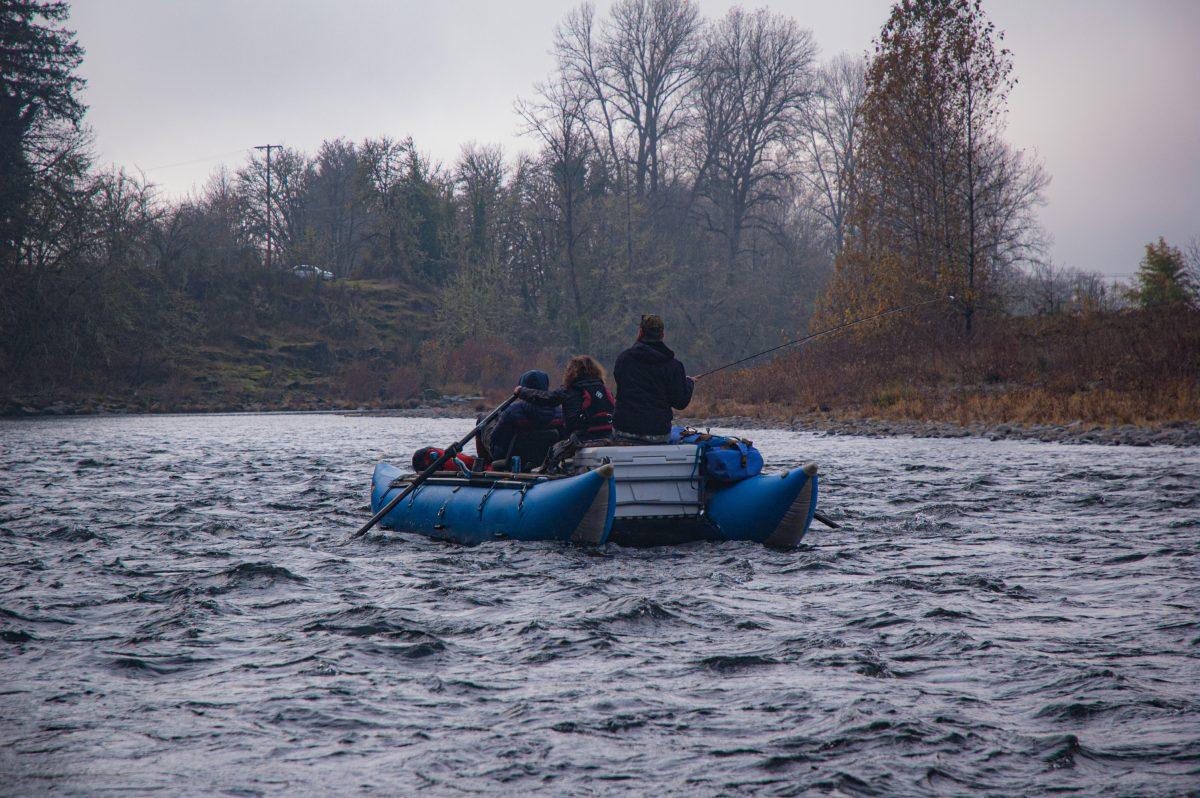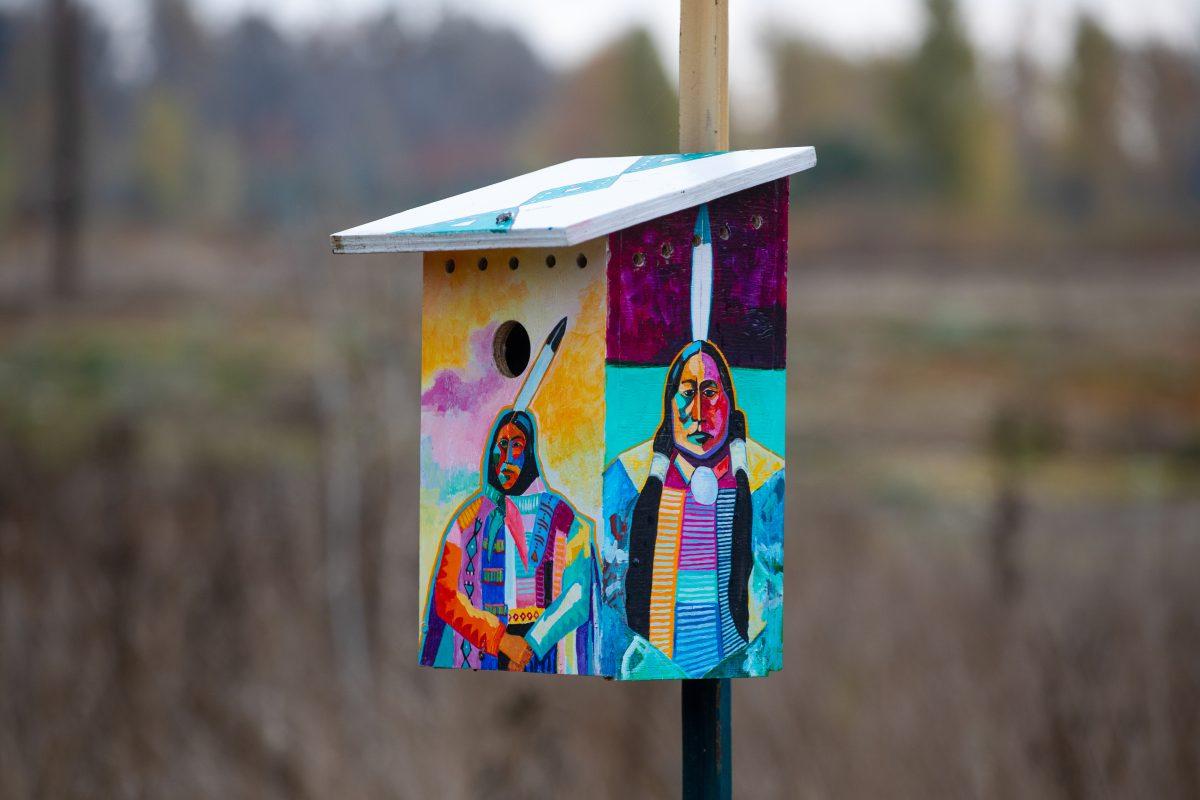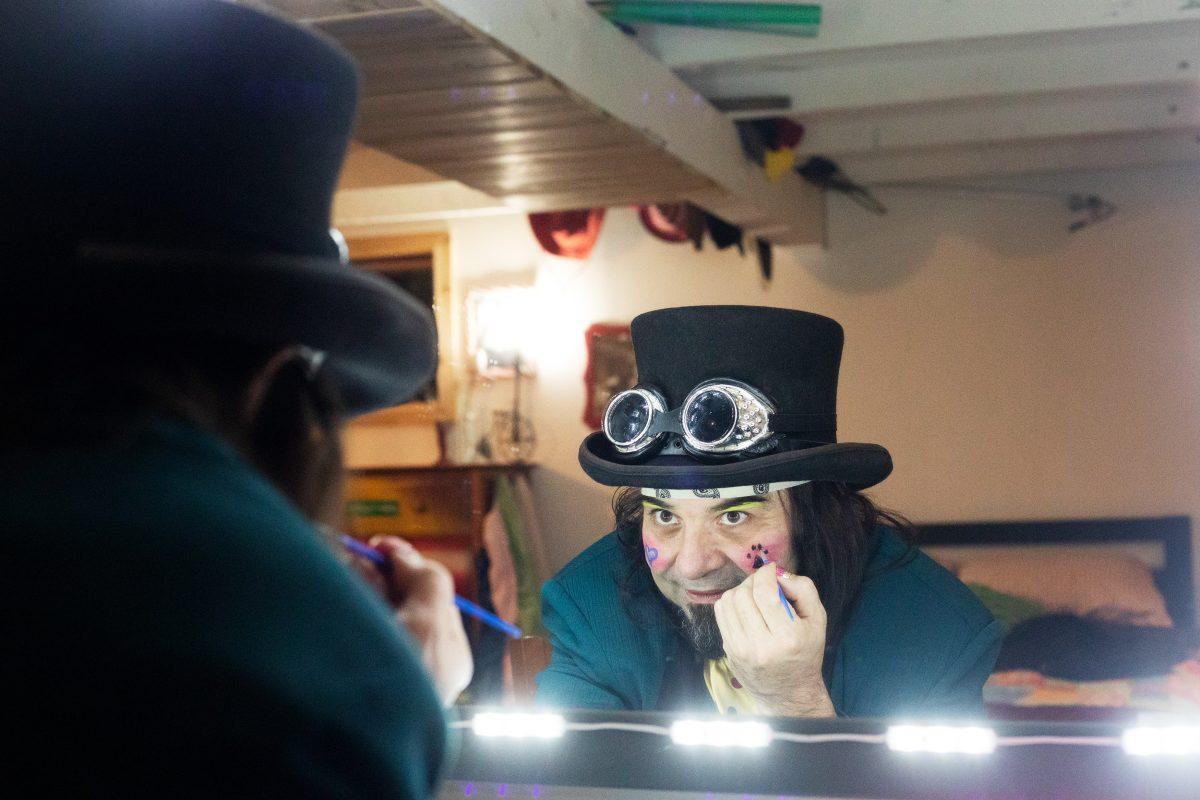Joe Moll drove up to Green Island in his Volkswagen Westfalia van, covered with past travel destinations as bumper stickers. In true adventurer form, he laced up his hiking boots and put his binoculars around his neck, then his walk through the land’s trails began. It’s the same land that Moll has been fighting to protect for over 15 years.
Green Island is a part of the 7,000 acres of Oregon land that is protected and owned by the McKenzie River Trust. Moll became the trust’s executive director in 2005.
The McKenzie River Trust is a nonprofit, established in 1989 with the purpose of protecting wildlife in Western Oregon. The land trust has two ways of owning property, either owning the land outright or through “conservation easements.” In the latter, the trust works with current landowners to have dual responsibility in protecting the land.
Green Island is home to the confluence of the Willamette and McKenzie Rivers. It was purchased in 2003 and has a diverse river ecosystem. The trust has worked to restore the land to its full potential by planting over 650,000 native trees and shrubs. It’s also connected many of the land’s channels back to the river by removing thousands of feet of levees, which are embankments built to prevent the overflow of a river.
“The original plan was to get it into the hands of a bigger organization, like the national fish and wildlife service, who we worked on the initial restoration of the land with,” Moll says. “But over time, we had more volunteers come to help with maintenance, and more people began enjoying the land. It really grew on us, and we shifted the plan to us holding on to it long term.”
Moll says volunteers are essential to the trust’s work. Volunteers work in the lands to help push forward the conservation efforts. Rick and Sandy Wiese, a husband and wife, have been volunteering with the trust for several years and have served as the welcoming faces for hundreds of community members when the land is open for walking visits once a month. The couple says recent local wildfires have played a large role in their volunteer efforts.
“We have 1,500 members within the land trust,” Sandy says. “After local disasters, people have seen the land trust as a way to help.”
Moll says the land trust makes a conscious effort to have a good relationship with the community it works in.
“We care about the communities that depend and live off of the McKenzie River,” Moll says. “We show up and try to be a part of the environmental conversations.”
The river trust works with partners across Western Oregon to design and implement large-scale restoration projects that are to the advantage of the fish, wildlife and people of the region.
There’s a push for more accessibility of natural lands in the country. Through social justice initiatives that have gained national interest in recent years, Oregon’s Native American community has brought attention to the large amount of land that was taken from their ancestors by European colonization. This has led to a bigger-picture question of how to move forward with redistributing land to Native tribes.
The McKenzie River Trust is facing that question themselves.
“We are working more and more with the tribes in the area,” Moll says. “The tribes had a lot of land lost and stolen, but it’s not fair to just throw land at them and tell them to take care of it. So, we’re trying to figure out how to make that switch to someone else easier.” Moll says recent land purchased on the coast is intended by the trust to be given back to Native ownership.
Moll also points out that the former tribal owners of the land had a very high respect and appreciation for the natural world. “There’s a lot of cultural wisdom we can learn from the Native tribes,” he says.
Although the McKenzie River Trust is working on a relatively small scale when looking at the overall effects of climate change, Moll says implementing new strategies in an attempt to limit climate change is one of the land trust’s main goals. According to the United Nations, climate change is “the single biggest health threat facing humanity.”
Moll says the river trust is pushing for a future of green infrastructure, the idea that the country can find sustainable solutions to climate challenges within the natural world. It incorporates the environment and modern engineering to provide clean water and protect ecosystem functions, rather than building harmful infrastructure.
“The answer isn’t always found in bricks and cement,” Moll says. “A lot of our answers are already here.”
The river trust has been putting this to practice throughout its protected lands. It has been fighting to bring back biological diversity, which it said has been lost in many ways. It’s also been creating a wider floodplain, which will create more water availability for drinking water and industrial/agricultural uses. Moll says in the long-term, the trust aims to expand on the size of its protected lands.
Moll says the battle for protecting Oregon lands and ecosystems is dependent on community involvement and awareness.
“The biggest problem we face is irrelevance,” Moll says. “If we move to a point where people don’t care about nature and taking care of it, we’re in trouble.”
After 20 years of environmental protection work, Moll says creating a cleaner and more protected McKenzie River can be a gateway to creating environmental change and conversations within the community.
“We’re hardwired to have wonder about the natural world, so if you give people the space to rediscover it, I’m confident they will,” Moll says. “Let’s not be quick to wag fingers, but let’s extend a hand instead.”
Local artists and activists use their creativity to tell a story. The Mckenzie River Land Trust works with various native tribes in order to help restore land.









![[Photo Courtesy of the Lara Family]
Ruben embraces his beloved childhood goat, Katrina.](https://ethos.dailyemerald.com/wp-content/uploads/2025/05/katrina-1-1060x1200.jpg)


